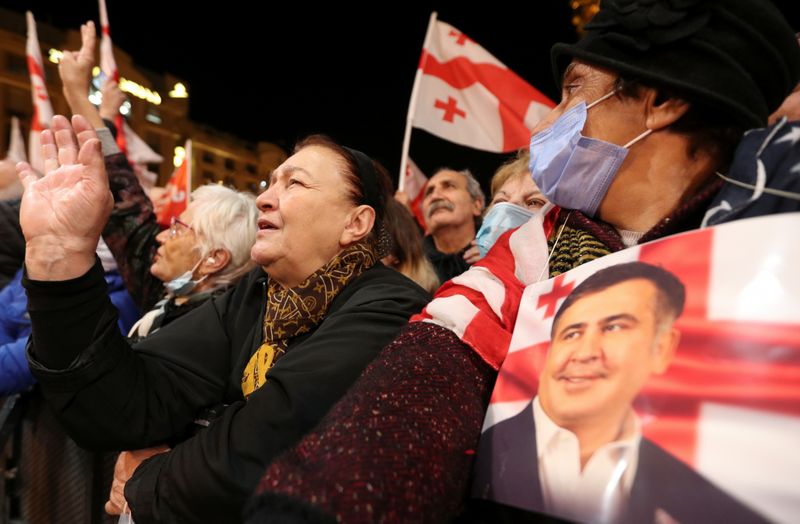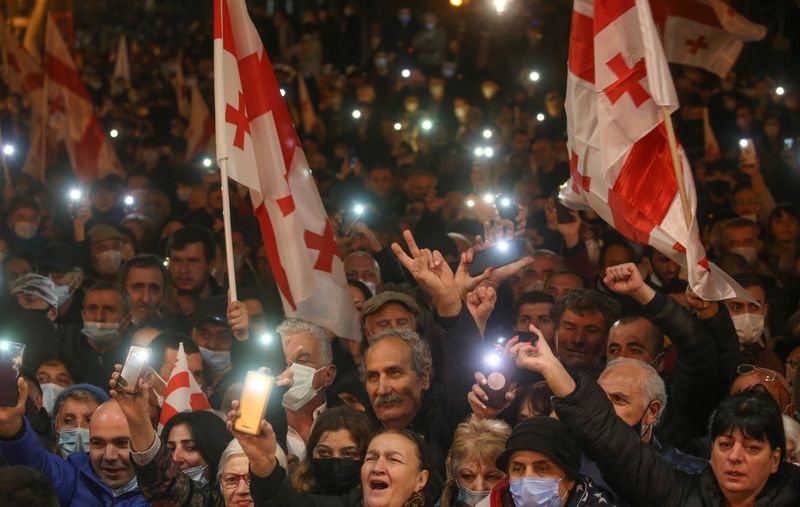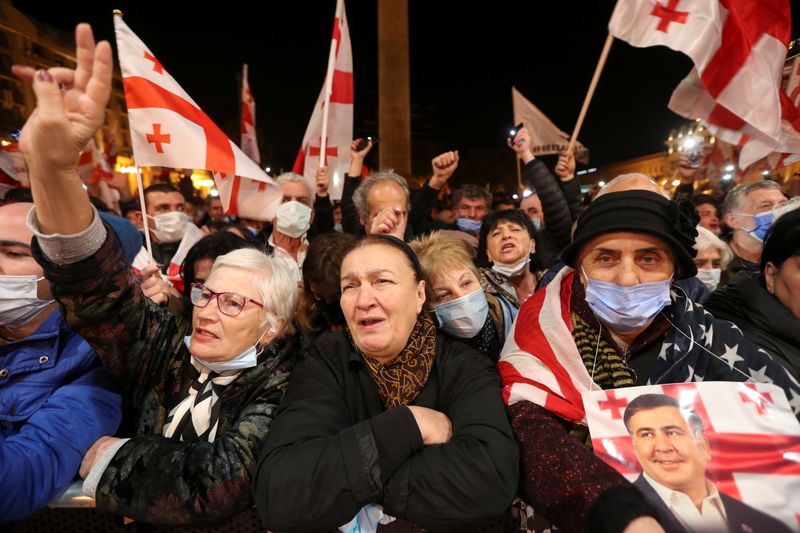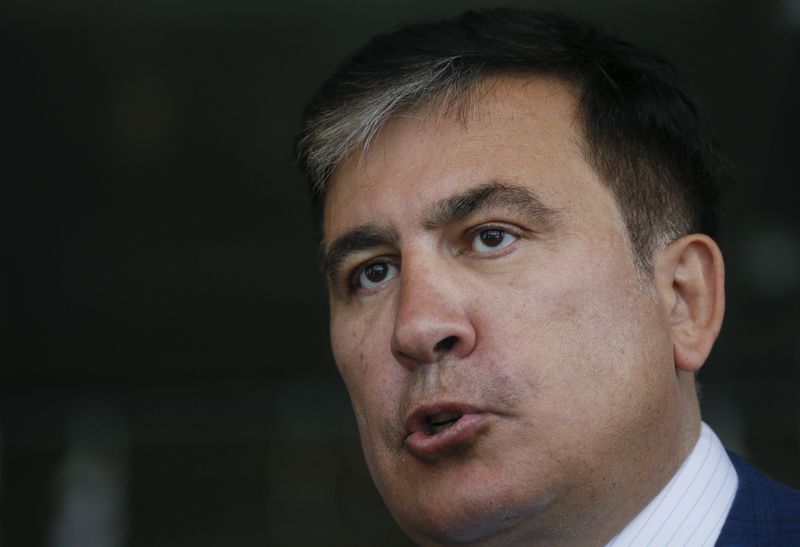TBILISI (Reuters) -Former Georgian president Mikheil Saakashvili was transferred to a prison hospital in the capital Tbilisi on Monday, the prison service said, just over five weeks after he declared a hunger strike in jail.
The 53-year-old, who had asked to be treated in a civilian clinic, was taken instead to a prison hospital in the Gldani district of the capital. His partner said she feared for his safety.
Several thousand demonstrators staged a rally in support of Saakashvili in Tbilisi on Monday night.
Saakashvili was arrested on Oct. 1 after returning from exile to Georgia to rally the opposition on the eve of local elections, in what he described as a mission to save the country.
He is the most prominent and divisive living figure in Georgia’s post-Soviet history, having come to power via a peaceful “Rose Revolution” in 2003 and led the country into a disastrous war with Russia five years later.
His case has drawn thousands of his supporters onto the streets in recent weeks and raised political tensions in the country of 3.7 million people. The state security service accused him at the weekend of plotting a coup.
Doctors had recommended weeks ago that Saakashvili be hospitalised as a precaution, and he was given a blood transfusion on Oct. 22.
His partner, Ukrainian member of parliament Liza Yasko, said on Twitter: “He has been transferred to the most dangerous place for his life – Gldani.”
Saakashvili faces six years in prison after being convicted in absentia in 2018 of abusing his office during his rule, charges he rejects as politically motivated. Before his return last month he had been living in exile in Ukraine, where he had become a citizen and built a new political career.
Ukraine’s human rights commissioner, Ludmila Denisova, who visited him in prison on Oct. 27, said Saakashvili had feared being taken to Gldani because it housed prisoners who had scores to settle with him dating back to his 2004-2013 presidency.
Nona Mamulashvili, a member of his opposition party, accused the authorities of “kidnapping” him.
NO PARDON
President Salome Zourabichvili said last week Saakashvili had come back in order to destabilise Georgian politics and that he could never be pardoned.
But she said that given the strong public interest in his case, he must be recognised as a special prisoner and authorities should take all possible measures “so the deterioration of his health is not used for political speculation or destabilisation”.
The prison service said at the weekend he had been eating jars of baby food and drinking juice. In a Facebook post, Saakashvili said he was not taking food but had received a few bottles of juice.
“His condition was getting worse. Basically it’s 38 days today that he has been on hunger strike,” Mamulashvili told Reuters. She confirmed a report that he had taken confession in prison with a priest of the Orthodox Church.
Mamulashvili said Saakashvili’s family had not been told about the transfer in advance.
“His family were supposed to see him today. His children and his mother and his doctor. For two hours they (were) waiting to get access to his room, but it turned out that he was already removed from the prison,” she said.
One of Saakashvili’s lawyers said they had not been able to contact him because they were not being allowed access to his new prison during non-working hours.
(Additional reporting by Andrey Ostroukh, Dmitry Antonov, Gabrielle Tetrault-Farber and Alexander Marrow in Moscow and Natalia Zinets in KyivWriting by Mark TrevelyanEditing by Peter Graff)



























